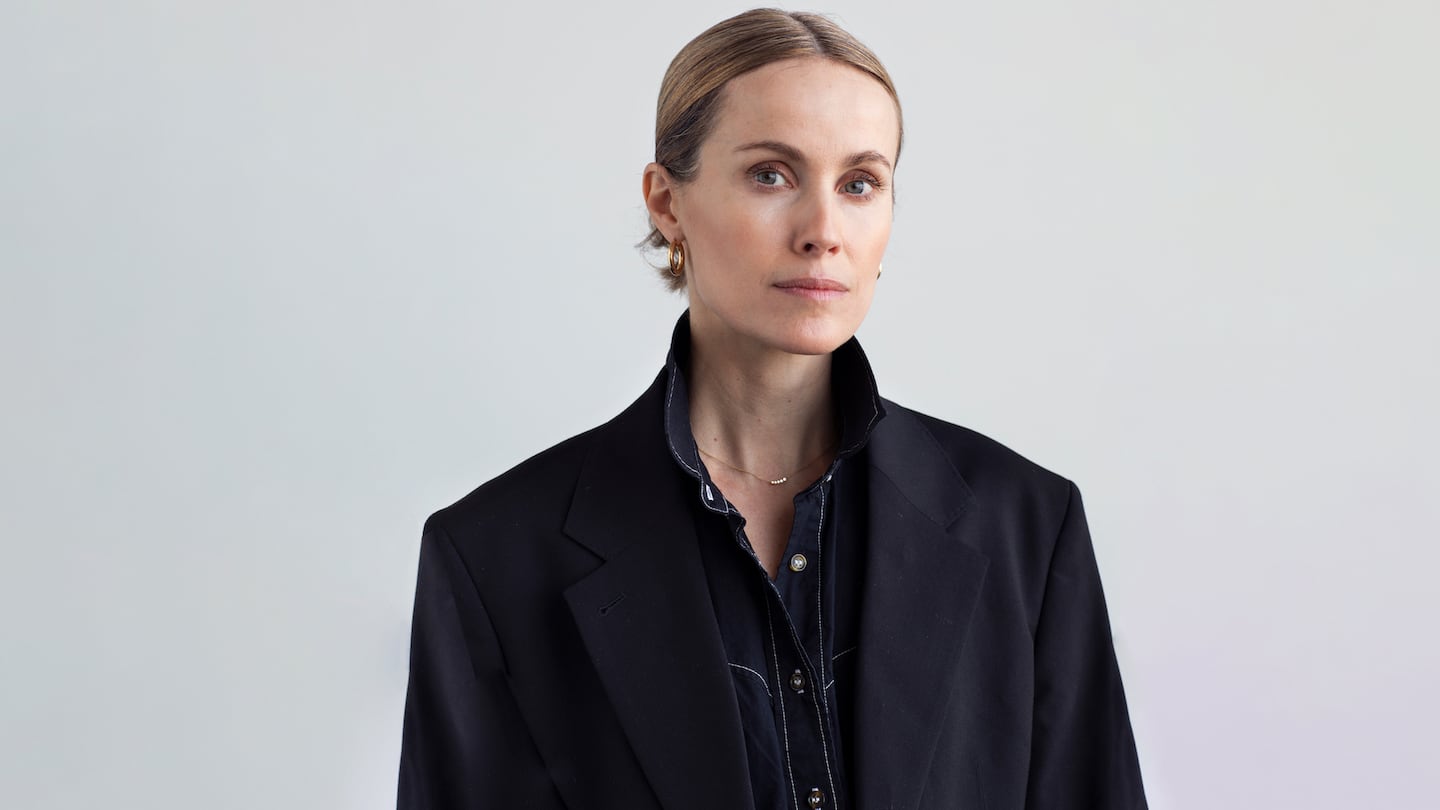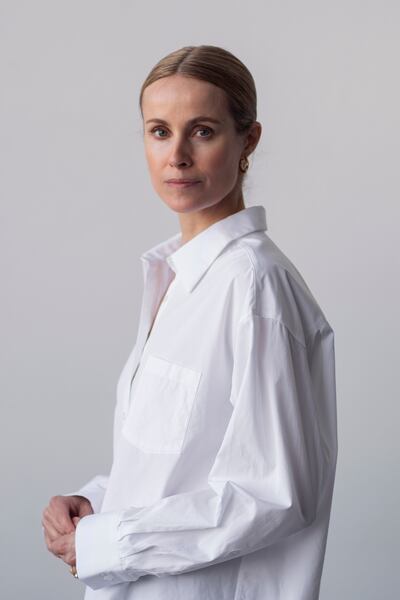
The Business of Fashion
Agenda-setting intelligence, analysis and advice for the global fashion community.

Agenda-setting intelligence, analysis and advice for the global fashion community.

This year, Snapchat has partnered with BoF to platform three new members of the BoF 500 that represent innovation across business, creative and technology categories. Among the selected is Cecilie Thorsmark, chief executive at Copenhagen Fashion Week (CPHFW).
Since taking the helm at CPHFW in 2018, Thorsmark has succeeded in amplifying the fashion week’s impact while increasing its ambitions. Dubbed “The Gen-Z of fashion weeks,” CPHFW is a leader in championing sustainability — driving innovation across the Scandinavian industries through the introduction of shared ecological standards that exhibiting brands must meet to appear on schedule.
Additionally, CPHFW launched its emerging designer support scheme this year — CPHFW NEWTALENT, supported by Circulose — with its key mission to nurture, develop and promote emerging talent in the region on a global scale. The scheme offers this opportunity for three select emerging designers.
What’s more, Web3 and augmented reality (AR) are additional innovation pillars at CPHFW. In 2022, Rotate launched its first ever NFT digital garment for Spring/Summer 2023 at CPHFW — available via AR on Snapchat. Now, BoF sits down with Cecilie Thorsmark to understand how CPHFW transformed itself to become a sustainability leader, and how she hopes to inspire international change.

What is driving you to innovate CPHFW?
I took the job of CEO at Copenhagen Fashion Week in 2018. The reason I took on the job was that there was an opportunity and need to challenge the existing purpose of a fashion week. I had been working at the Global Fashion Agenda for some years and was passionate about sustainability.
That is what motivated me — I found it to be a challenge. My ambition from the very beginning was to transform fashion week from being this event that merely showcases new collections and celebrates glamour and glitz, to become a more agenda-setting platform for driving change in the industry and accelerating the sustainability efforts of the brands that our fashion week works with.
What were the greatest challenges and successes in applying minimum standards to show at CPHFW?
Our minimum standards reflect certifications, tools and standards that are already out there. We have basically done a mapping of how to work with sustainability and then we have put it into a digestible 18 minimum standards for brands to work with.
We knew it was going to be a vast amount of work — it is everything from developing the three-year sustainability action plan, then identifying the minimum standards and also technically implementing the minimum standards in an online form, which we did in collaboration with Ramboll, an engineering company. We ran four rounds of pilot tests with brands so that we were able to get insights into how they were working with our minimum standards and what level of improvement, tweaking or revising our minimum standards might need.
My ambition from the beginning was to transform fashion week [...] to become a more agenda-setting platform for driving change in the industry.
The successes by far outweigh the challenges. We have experienced so much industry support, and also the fact that this has happened over three years has allowed for a structured approach to working with a minimum standard, through the many pilots we completed.
How are you engaging the international industry to drive positive change inside and outside of Scandinavia?
When I started in 2018, the first thing we did was establish an advisory board. I thought it was important for us in order to present our vision of how to transform the purpose of fashion week, but also to get their feedback, insights and perspectives.
[As well as] having a sustainability advisory board, we also engage a panel of international experts in the development of our sustainability minimum standards. For example, we consulted with climate researcher Katherine Richardson, human rights and labour researcher Frank Hoffer, and [research professor and author] Kate Fletcher, hopefully benefitting the positioning of our fashion week and driving change within the industry that we represent here at Copenhagen Fashion Week, which is primarily the Scandinavian industry.
But if we want impact at a larger scale, it is important that it is not only happening here in Copenhagen but also in other countries, other organisations and fashion weeks. We now have three partnerships with other organisations who have adopted our framework of minimum standards — The Norwegian Fashion Hub, [Oslo] Runway (the fashion week festival of Norway) and the Icelandic Fashion Council.
My ultimate dream is [to] engage even more organisations. I am optimistic as we are having very fruitful dialogues with other organisations in other parts of the world.
How do you feel international cooperation can contribute to impactful change?
International cooperation is key. It is about identifying the obstacles together and then striving towards more purposeful and meaningful ways of navigating through it together. You will always be more fruitful if you collaborate, pull resources with other like-minded organisations, nations, countries and fashion weeks.
You will always be more fruitful if you collaborate, pull resources with other like-minded organisations, nations, countries and fashion weeks.
We recently joined the European Fashion Alliance. It has 21 founding members and we are actually meeting up for an annual summit this [October]. The European Fashion Alliance consists of all the most important fashion councils and fashion weeks of Europe. The aim is to identify the obstacles that we are facing and also see how cross-border collaboration can foster a more prosperous future for European fashion creatives and the European fashion industry, and act as a strong common voice for pushing change here in Europe.
That is a very good example of how international cooperation can create impactful change. What makes this alliance stand out is that it is focused on action and so I have high expectations that this European Fashion Alliance will actually create meaningful and lasting change.
What does the BoF500 mean to you?
On a personal level, I’m so honoured to be listed among so many inspirational figures from the international industry. Figures who are also questioning the status quo of the fashion industry in very different ways. If you look across the spectrum of profiles, [they are] pushing for better industry standards [and] conditions.
On a professional level, I think the accolade, in terms of Copenhagen Fashion Week, is that we get the chance to be spotlighted for the crucial work that we have been doing to catalyse change in our industry. It is an outstanding opportunity to speak to other organisations, who, like Copenhagen Fashion Week, didn’t maybe traditionally take action on sustainability because we thought it was outside our scope.
Too often we are placing the responsibility on brands and consumers, but the responsibility lies on every single sector in the ecosystem. Whether a fashion week, fashion magazine, fashion influencer, it is so important that you use your voice and your platform to spark change. I’m hoping that this could inspire others in the fashion ecosystem to know that it does matter to take action and that accelerating positive change in the industry should not only rely on brands or consumers.
Editor’s Note: This article was revised on November 16, 2022. An earlier version of this article stated that CPHFW ran pilot tests with four brands to apply show minimum standards. That is incorrect. CPHFW ran four rounds of pilot tests with brands.
This is a sponsored feature paid for by Snap as part of a BoF partnership.
From analysis of the global fashion and beauty industries to career and personal advice, BoF’s founder and CEO, Imran Amed, will be answering your questions on Sunday, February 18, 2024 during London Fashion Week.
The State of Fashion 2024 breaks down the 10 themes that will define the industry in the year ahead.
Imran Amed reviews the most important fashion stories of the year and shares his predictions on what this means for the industry in 2024.
After three days of inspiring talks, guests closed out BoF’s gathering for big thinkers with a black tie gala followed by an intimate performance from Rita Ora — guest starring Billy Porter.